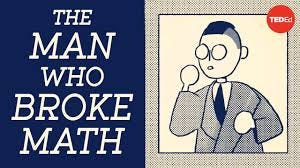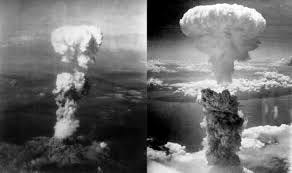Don’t punish Elon Musk for doing magic
Fear of technology is deeply rooted in human history - from Prometheus to Faust to Musk. Science optimism must engulf all aspects of society not just technology
Silicon Valley’s can do culture is electrifying. But sometimes it pays to pause and question the fundamental assumptions underpinning technology optimism. For example, is science really good for humans? Does technology bring progress, is it beneficial or not? One way to answer this question is to look back in history and see what people said about this topic. Another, is to measure the impact of technology. Interestingly enough, the former gives a rather bleak picture of technology while the latter does the opposite.
Science and Technology are drivers of prosperity
Fist, the good news. Technological progress has brought an unprecedented wave of wealth creation to humanity and lifted millions of people out of poverty. The benefits have been massive.
Skeptics prevailed thought history
Unfortunately, this energy has not been felt in philosophy circles. Throughout history, thinkers have been rather skeptical towards technological progress as science and technology have been regarded as a negative thing, like some kind of original sin.
Prometheus
In Greek mythology Prometheus, the titan, defies Zeus by stealing fire from the gods and giving it to humanity. This fire symbolizes enlightenment, technology, and civilization. Zeus gets very angry and punishes him for eternity. His punishment—being bound to a rock and having his liver eaten daily by an eagle—highlights the suffering and responsibility that often accompany the pursuit of wisdom or power. Why did Zeus get so angry?
Faust
More recently, Goethe, the German poet, wrote his epic Faust, about an intellectual who is frustrated with his progress and strikes a deal with the devil. Faust sells his soul to the devil in exchange for magical powers and knowledge.
Another German writer, Thomas Mann, picked up on the theme of Faust in his epic novel Dr. Faustus, where he discusses the struggles of an alleged genius. His main character, Adrian Leverkühn, is a groundbreaking composer whose art is cold and lacks humanity. Nevertheless, he pushes the field into new directions and gets generally recognized as a genius. Mann is more subtle than Goethe, but there is ample evidence in the novel that Leverkühn strikes a pact with the devil in exchange for genius.
Dead end philosophy and the futility of truth seeking
Eventually, philosophy eats itself with Heisenberg, Russell, Wittgenstein, and Gödel. While these men worked on very different problems, there is an overarching theme in their conclusions, which is that humans don’t have the tools to understand what nature is really about. In other words, we can’t reason ourselves towards the truth.
In my opinion, this is why Zeus got angry with Prometheus. It’s not because he gave fire to humans and showed them the power of technology. It’s because he didn’t also explain to them the limits of logic and reason.
This task fell on Karl Popper and his contemporary disciple David Deutsch. In Popper’s epistemology, there is neither truth nor right nor wrong. There is only better and worse. In other words, Popper picks up on the century-old theme of Prometheus, Faust, and all the other technology skeptics and gives us a valid answer to why we can still pursue science and technology. It’s not because we might find truth but because we can replace existing technologies with better ones. Better is neither right nor wrong. It’s just that—better.
The following is a short history of epistemology, starting with Heisenberg and culminating in Gödel showing humans that reason and truth are illusions. Then I’ll introduce Popper as a solution to this problem. As a conclusion, I will argue that Zeus was angry with Prometheus because he showed humans the power of technology without installing the necessary humility of fallibilism in them, which, according to Karl Popper, is necessary to truly understand the power of technology.
Bertrand Russell
In his seminal piece “Principia Mathematica,” cowritten with Alfred Whitehead, Russell attempts to ground language in a rigorous logical foundation of logic and mathematics. Science in the early part of the 20th was occupied with questions of logic and its limitations. Mathematicians like David Hilbert in particular were trying to establish a formalism in mathematics that would serve as the underpinning of truth-seeking science. The dream was to develop a scaffolding based on logic and math that would allow scientists to say for certain that something is true or not.
Russell and Whitehead took that quest at heart as they tried to establish such a formal theory in “Principia Mathematica." But they failed. In particular, they stumbled on the annoying concept of self-reference, which seemed like a glitch but eventually turned out to be much more fundamental. For example, how can I make a statement: “This statement is false." Or “the set of all items that don’t belong to a set”.
Russell’s work shook the science community, but it didn’t stop them from trying. It would take a few more years until Gödel put a lid on how far logic can take us in the quest for truth.
Wittgenstein
As uncomfortable as Ludwig Wittgenstein must have come across to his contemporaries, he had a point. His famous quote, "Whereof one cannot speak, thereof one must be silent,” epitomizes his philosophy laid down in his seminal work, ‘Tractatus Logico-Philosophicus’. Wittgenstein says that human knowledge is limited to language and its ability to express concepts. In other words, science is not much more than poetry that occupies itself with nature.
It’s a blow to every physicist who works in a lab, observes the stars, and builds technology. How can science just be a word game? Wittgenstein’s demeanor didn’t help. He came across as arrogant and spoiled, a trust fund kid with wild ideas looking down on other people's work.
But he made an impact on the philosophy of science. What Russell showed us was that language cannot be used for truth finding. So Wittgenstein built on this concept and drew his own conclusions. Only a few years later, Heisenberg showed us that we can’t even measure stuff precisely, let alone describe it.
Heisenberg
According to his autobiographical texts, Werner Heisenberg was reading Goethe on a remote island in the North Sea when he struck the basic outlines of what became his famous Uncertainty Principle. That’s not a coincidence. Goethe was a technology skeptic. Not only did he pen the saga of Faust, he also wrote 'The Sorcerer’s Apprentice', another, probably even more telling tale of how humans and technology don’t necessarily mix.
Heisenberg dug deep and almost fell ill when he finally came up with the math for his Uncertainty Principle. There is lots of fundamental physics embedded in the theory, but one crucial conclusion of the principle is that reality is not measurable. You can measure some of it but not all.
Werner Heisenberg has been a controversial figure ever since WWII because he’s been accused of cooperating with the Nazis. But that’s only part of the reason. In my opinion, Heisenberg’s sin was not to work for Hitler, which, according to his own statements, he did to prevent the dictator from acquiring the nuclear bomb. Anyway, his sin was to show the physics community its limits. His Uncertainty Principle basically says that the precision of measurements has fundamental limits. That’s more than just a blow to the ego of a contemporary physicist. It led some to the conclusion that their work is not much more than play.
Physics is particularly filled with high achievers who naturally don’t like to be shown their limits. Imagine people like Einstein, Nils Bohr, or Schrödinger being told that their efforts to measure reality are limited, not because they don’t have the technology, but because that’s how nature works.
Gödel
Eventually, Kurt Gödel formulated what most contemporaries must have already felt—that logic and math cannot be formally used to prove truth and that proofs don’t necessarily mean something is true. Math, according to Gödel, is a system that contains itself and gives us nice ideas, but we can't use it to prove truth outside of math. In his famous formulation of the Incompleteness Theorem, Gödel states that math can show truths that cannot be proven and that a proof doesn’t necessarily mean something is true. But that was just the appetizer. His second Incompleteness Theorem is even more devastating for worshipers of truth and logic. Gödel says that the consistency of math itself cannot be proven either. In other words, logic can’t always prove that something is true, and you can’t even prove that logic itself is a thing.
Don’t bother with the truth - build bombs
By the mid-1930s, the science community was in deep crisis mode. If math is not true and, as Gödel says, not even consistent, then what the hell is the purpose of science? They got their answer pretty soon. And it wasn’t what they expected and probably wished for. Science was supposed to deliver nuclear weapons, nuclear energy, and other such miracles. The quest for truth and meaning was put aside by world events. The new purpose of science, and in particular physics, was to answer questions such as ‘how to build nuclear bombs' or 'how to harness nuclear energy for industry'. Science went from philosophy to applied technology.
This was huge. Suddenly science wasn’t just something weird-looking men in dark suits did standing in front of chalkboards. The purpose of science was to move society ahead—to bring wealth, comfort, and foster optimism. While the world was divided into East and West, both sides considered the role of science as the driving force behind progress. Soviet scientists might not have had access to toilet paper, but they knew how to build nuclear weapons and satellites. Their counterparts in the West did the same.
As time went on, science got a more potent cousin—technology. Technology is what happens when science turns ideas into products. Both science and technology thrived after World War II and fostered optimism and prosperity, particularly in America. But then something changed. Around the mid-1970s, science and technology somehow dropped the ball. Today, we are still suffering from that fumble. What happened?
Science got corrupted by government
People stopped decoding nature and focused more and more on engineering. There is nothing wrong with engineering. In fact, people like Elon Musk swear by the profession. But engineering without science is like religion without purpose. You start doing stuff just for the sake of it. Engineering and science are two sides of the same coin. Science without engineering is just play, and engineering without science is stupid. You need both. But around the 1970s, physics in particular stopped decoding nature. Other priorities took hold, such as building massive, multibillion-dollar particle accelerators or researching pipe dreams such as nuclear fusion. It’s hard to pin down one factor why this happened. My guess is that the success of the Manhattan project fueled a false illusion amongst scientists that if you throw enough manpower and money at a problem, you eventually get results. That might be true sometimes, but human nature doesn’t work like that. Once you open up the checkbook, even science turns into a paper clip endeavor. My point is that science got spoiled with state-controlled financing, which fostered a culture of senseless, purposeless bureaucracy instead of mission-driven science.
Engineering = Computer engineering
As a consequence, the paths of science and engineering diverged. The latter was helped by the revolution in Silicon Valley, which drove innovations such as the computer, the internet, and AI. Today, engineering really means software engineering. Other fields of engineering such as mechanical, aeronautical, and electrical, are on the back burner. That’s a shame. We need more innovations in atoms. I’d rather have a self-driving car at 5 cents per mile than another social media app or video editing tool.
Science * Engineering * Mission = Progress
But there is hope. Elon Musk is the epitome of what happens when science and technology work in tandem. Musk actually studied physics. He is as obsessed with engineering as with science. But the Musk type of science is not the kind you encounter in your Ivy League physics department. He doesn’t optimize for publishing papers and frequenting fancy conferences. His goal is to go to Mars and transition the global energy infrastructure from carbon to electricity. For that, he needs as much science as engineering.
Technology and the Promethean Paradox - hope and fear
I started this essay by asking why Zeus punished Prometheus. Now, let me ask the question: Why are people afraid of Musk? Even before he got involved politically, Musk was controversial, and I would argue that his innovations have been driving a wedge in society. You either like it or not. Many people, even way back in the mid-2010s, didn’t like what Musk was doing. “Why wouldn’t you like a slick electric car that drives itself?” I would ask myself.
The answer is, people don’t like technological innovation because they’re afraid. Afraid of what? Well, that’s the question. “Why was Zeus angry?”
Power and responsibility
There are two explanations for why. One is that Zeus was angry because he didn’t want people to have power. Technology gives people leverage, and leverage is power. The contemporary equivalent would be bureaucrats in Washington stifling Musk wherever they can because bureaucrats don’t like to share power. I’d argue that the actions of the Biden administration resemble this type of behavior.
The other explanation why Zeus got angry is less selfish but more impactful. It’s because Zeus knew that humans cannot deal with technology and that they’ll eventually blow themselves up. This is the Sorcerer’s Apprentice argument. Here Zeus is less concerned with his own relative positions towards humans but more with the lack of awareness towards the magic powers of science and technology. Like any other superpower, science comes with responsibility.
Karl Popper solves the Promethean Paradox
Something has been missing in the history of science. Something that angered the gods with Prometheus and inspired Goethe to write Faust—and that’s humility. Karl Popper filled this gap in his seminal work, 'The Philosophy of Scientific Discovery'. Here Popper describes how science will always be ‘wrong’, in the sense that there is no absolute truth to aspire to. But scientists can improve on existing science. He argues that scientific theories can never be fully proven, only falsified, emphasizing the importance of testing and critical thinking in science. This is very much in line with Gödel’s Incompleteness Theorem. Popper shifts the focus from ‘truth searching’ to ‘improving’. This subtle change offers tremendous opportunities. First, Popper frees scientists from the shackles of truth, which they can’t achieve anyway. Second, he gives new purpose to science. His message is, “Find better solutions to existing problems”.
Popper’s core idea is that everything we do can be improved—that nothing is set in stone. This opens a whole new set of possibilities but also assigns more responsibility to scientists and technology entrepreneurs.
One important corollary of Popper’s work is that science and technology cannot be viewed in isolation. They are embedded in society and thus part of a bigger picture. Every technological innovation changes all other variables and creates new, hopefully better problems. For example, self-driving cars free humans from sitting at the steering wheel for hours. But new problems arise, such as how to entertain passengers while they’re being driven, how to clean self-driving robots, and what to do with an army of unemployed taxi drivers. Technology must be seen holistically. Another crucial aspect of rapid technological progress is education. We must change the way we school our kids and prepare them for a future where life and work change much faster. City design, architecture, politics, school and even grocery shopping must be adapted to a rapidly changing world.
Science is a feature, not a bug
Science and technology are a consequence of free societies. They happen because humans are free to explore and think about problems in the world. What angered Zeus about Prometheus is not that he gave humans the superpower of technology, but that he didn’t teach them humility. Technological innovations always come with the responsibility to embed them in human society. That’s the key message of this essay. Karl Popper helped bridge the chasm that Faust and later Gödel opened. It’s not about seeking the truth. It’s about improving. We’ll never get to the core of what we perceive as truth. But we can always do better and use the superpowers of science and technology to improve our living conditions, here on earth and eventually in the universe. But we must never forget that any theory, anything we consider knowledge, can be falsified and improved with new knowledge.
Conclusion
People fear technology because it either takes power away from them or because they don’t trust humans to deal with magic. Both fears are legitimate. Even Zeus couldn’t resist this impulse when he punished Prometheus for giving humans fire and showing them the path of technology. But we can do better. We can have both, technology and less fear. For that, we need two things to change. First, science has to come back to its original purpose of decoding nature for the purpose of building mission-driven technologies and stop indulging in government-sponsored waste. Second, we must build better institutions that deal with all aspects of technology. Better institutions are those that improve everybody’s position, such as sound money, free speech, or property rights. People fear technology because technologists are isolating themselves. “Shut up and calculate” is the worst advice anybody could give to scientists. It’s the exact opposite. Calculate and communicate as much as possible. Elon Musk is doing his part. The rest of the academic industrial complex must do the same.





